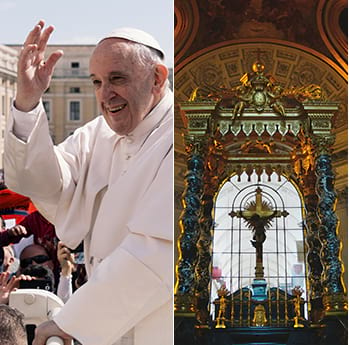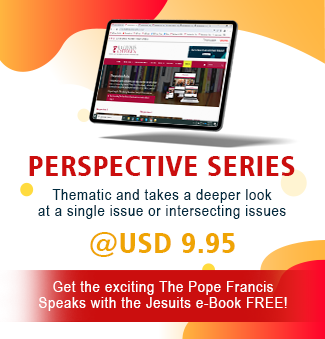At the outset of Faith as an Option,[1] author Hans Joas questions the causal relationship between modernization and secularization.[2] According to many 20th-century philosophers and sociologists, modernization in the West would lead not only to a freeing of public conscience from the illiberal and obscurantist legacies of religions, but also to their complete disappearance. Today, sociological and statistical research conducted by the most important international research institutes describes a general and unexpected “return to the sacred”[3] and a renewed presence of religions in the public sphere. The theory of secularization is no longer able to reflect the multifaceted aspects of our contemporary societies. Today, we are instead witnessing a de-privatization of religion: “Religious traditions throughout the world refuse to accept the marginal and privatized role that the theories of secularization and modernity had reserved for them.”[4]
Religions return to the public arena to redefine the boundaries of influence in the relations between social duties and individual conscience, legality and morality, religious education and plurality. In the field of sociological research, it is increasingly common to define this orientation as a “post-secular religious condition.”
Post-secularism and religious identities
It is from this post-secular perspective that one can make a phenomenological reading of religious experience that is not exclusively limited to the observance of the process of de-privatization of religions, but orients its observations to the transformations that religions in general offer. In the last 30 years, in fact, it has become possible to recognize a change that highlights common features of different spiritual projects: “an exceptional pluralization and diversification of faith communities with regard to religious confessions of ancient tradition”[5]; the diffusion of new forms of trans-confessional religiosity based on inclusivism (a person can contemporaneously belong to a Christian Church, attend Buddhist temples, adhere to a New Age movement and practice Zen meditation); an emotional, anti-institutional preaching, centered on the individual and on psychophysical well-being; the low level of hierarchization of new religious organizations; the emergence of neo-fundamentalist or neo-integralist currents (also in the Western Christian context), which claim new certainties.
The adhesion to new forms of religiosity and the development of fundamentalism also place us before the development of original forms of worship that unite Adventist spiritualism with rigid moral concepts often developed from a fundamentalist and literal interpretation of the sacred texts.
This article is reserved for paid subscribers. Please subscribe to continue reading this article
Subscribe
Welcome to
La Civiltà Cattolica !
This article is reserved for paid subscribers
Please login or subscribe to continue reading this article
























